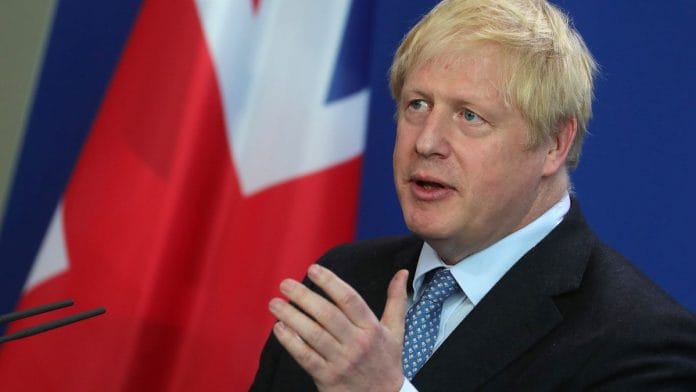New Delhi: It is becoming increasingly tougher to track UK’s Brexit saga given the flurry of parliamentary bills.
ThePrint takes a look at the dramatic developments of the past few weeks and attempts to unravel the complications that Britain faces in its impending exit from the European Union.
The signed and unsigned letters
On Saturday, the parliament passed a bill to extend the Brexit deadline – beyond the agreed upon 31 October.
“A planned vote on Boris Johnson’s Brexit deal was pre-empted when MPs adopted an amendment which effectively requires the PM to ask for a third extension to the UK’s planned departure,” noted BBC report.
This forced UK Prime Minister Boris Johnson to write to the European Union, asking for the same. However, there is a twist in the tale.
Prime Minister Johnson sent two letters to the EU. One was an unsigned letter asking for an extension on the Brexit deadline. While the second letter explained why the first letter was left unsigned – and why it was not a good idea to extend the deadline.
“The EU is now considering how to respond to the UK’s request for a delay, but has said Saturday’s developments did not mean that the deal had been rejected,” reported BBC.
The new Brexit deal
London and EU attempted to renegotiate the Brexit deal after three deals presented by former UK Prime Minister Theresa May were struck down, effectively ending her term.
The two sides managed to reach a new Brexit deal, with some technical tweaks to the previous one, on Thursday.
The new deal needed the approval of the British Parliament and the 27 EU members.
Johnson had anticipated that he would be able to get an approval from the Parliament, however, the British legislators passed a different bill instead – seeking a deadline extension.
What happens now?
On Monday, Johnson would be pushing for a parliamentary vote on his new Brexit deal.
According to a BBC report, “The PM now wants MPs to say a clear ‘yes’ or ‘no’ to the deal on Monday, adding: ‘We cannot allow Parliament’s letter to lead to Parliament’s delay’,”.
It would be up to the speaker of the UK House of Commons (lower house), John Bercow to decide whether he would allow a parliamentary vote on the new Brexit deal and the Johnson-led government insists that it has enough parliamentary support to get an approval for the Brexit deal.
Meanwhile, the Cabinet Office “has triggered Operation Yellowhammer – its contingency plan to handle a no-deal Brexit – because it said there was no guarantee the EU would grant an extension,” reported BBC.






